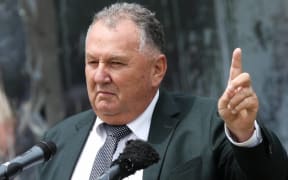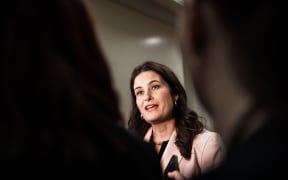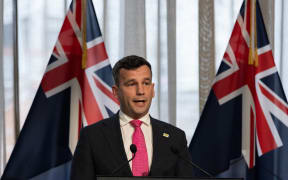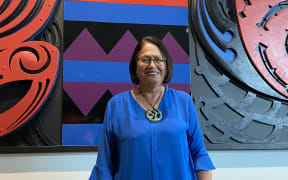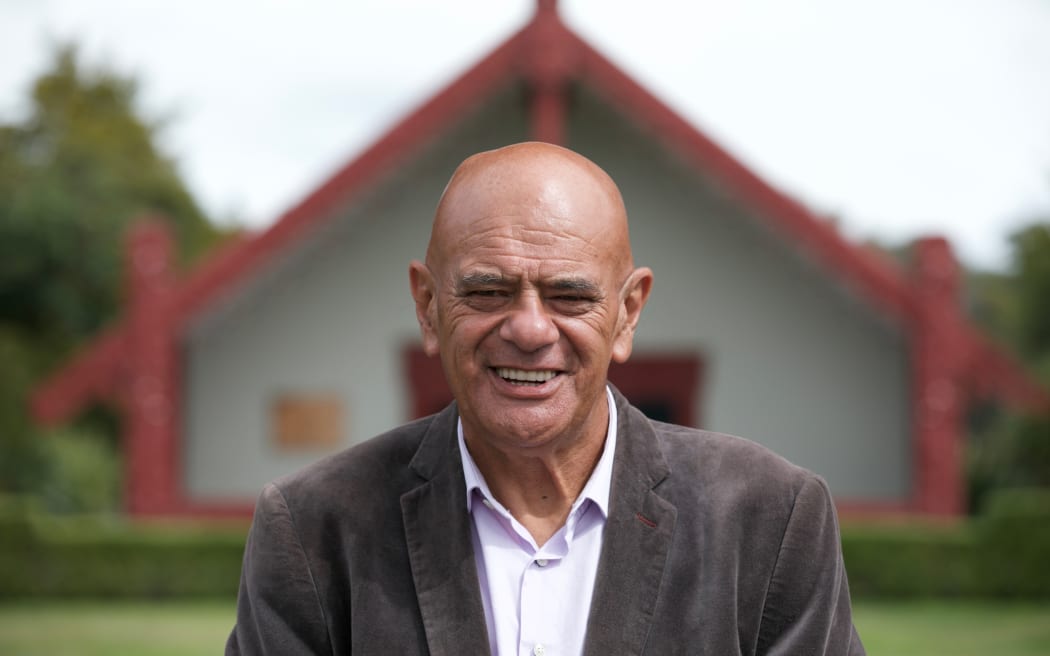
Ngāti Hine chairman Waihoroi Shortland Photo: Provided
Politicians such as Shane Jones should engage with the Waitangi Tribunal over a possible new constitution, rather than condemn it from the outset, a Māori leader says.
Waitangi Tribunal members and claimants are meeting on Tuesday in Waitangi to consider the possible framework for an inquiry into a new constitution.
The inquiry will reportedly seek to establish what a contemporary constitution for Aotearoa might look like that is compliant with the Treaty.
The first of what is likely to be several regional meetings will be presided over by Waitangi Tribunal chair and chief judge of the Māori Land Court, Caren Fox.
On Morning Report this week, New Zealand First deputy leader Shane Jones said he objected strongly to the inquiry.
Jones said any change to the constitution should be the prerogative of democratically elected officials and the tribunal did not have a mandate from New Zealanders to start the work.
However, Ngāti Hine chairman Waihoroi Shortland believed the inquiry was overdue and 184 years in the making.
He said Jones was "well schooled" in the way Māori had tried to voice their concerns over the problems successive governments have had with the Treaty.
It was rich for politicians to talk about engaging with Māori and then not engage with this issue, Shortland said.
"Come and listen to what is being proposed and then you may find that we all have the same goals.
"We all want to address some form of constitutional change."
He said ACT leader David Seymour was proposing a form of constitutional change with his Treaty Principles Bill.
"They [politicians] shouldn't be the only people who get to consider that. They talk to us about engagement and discussion but only in the terms they want to set."
Asked if the tribunal was the best forum to consider a constitution he said he believed it was.
The inquiry would be open to anyone, including the Crown, which had been invited to be a participant. In the past it had been an observer at an inquiry. However, this time it was hoped Crown representatives would make be able to comment at the hearing.
The process would be based on what happened within a wharenui (meeting house). Māori would be one side, the Crown on the other.
"You have a right to present, you have a right to engage; don't wait until recommendations are made, get involved."
While the tribunal's recommendations would not be binding on Parliament, Shortland said politicians would make better decisions if they were involved in the process, rather than Seymour's approach with his Treaty Principles Bill.
Regarding the possible conflict between constitutional changes Māori might want and the ideas of the way a democracy runs, he said Māori had not been "privileged" by the Treaty.
"We end up at the bottom end of the way that you can look at the progress of this nation. ... I'm still waiting to see how well we have been privileged."
He was not bothered by Jones' vow to rein in the tribunal and appealed to him to engage with the process.
Constitution initiative 'possibly very divisive'
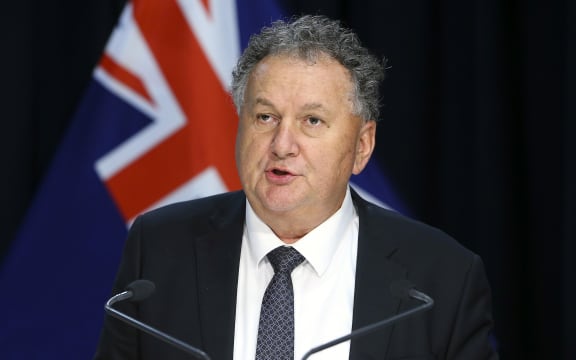
Shane Jones Photo: Pool / Hagen Hopkins / Getty Images
Jones said the Waitangi Tribunal was undertaking "a constitutional exercise promoted by some Māori" at Waitangi on Tuesday.
"What New Zealanders mandated that to happen?
"Where in earth does the Waitangi Tribunal think it's got a higher level of moral authority to undertake that exercise, possibly very divisive, without recourse to the politicians?"
He wanted the Waitangi Tribunal "substantially redirected and its writ changed".
"They cannot and must not have the authority to write a new constitution for New Zealand."
That was a job for politicians, he added.
Asked to comment on ACT leader David Seymour's observation that the atmosphere might be more tense at Waitangi this year, Jones replied he had been attending since he was 12 in the 1970s when people such as activist Syd Jackson sought "to stir up Waitangi".
"I wouldn't want New Zealanders feeling upset or intimidated about coming to Waitangi. There's always an element of pageantry, politics and posturing."
Regarding Seymour's stance that Te Tiriti o Waitangi was not a partnership, Jones said New Zealand First had never campaigned on it being a partnership between hapū iwi and the Crown either.
Instead, the party regarded it as the country's foundation document.
"But the notion that any single principle in the Treaty overwhelms democracy is something we are antithetical to."
That was the major reason the party opposed co-governance, Jones said.
He favoured "a big debate" when Seymour's Treaty Principles Bill that proposes to rewrite the treaty principles before putting them to a public vote, finally made it to a select committee.

